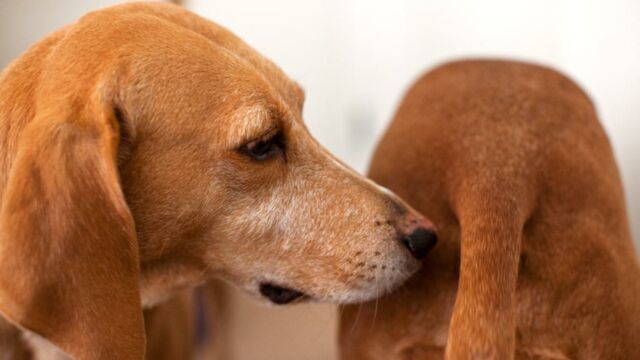If you own a male dog, you should pay attention to some of the activities they like to engage in as these could increase their risk of getting nose cancer. A new study has shown that male dogs are four times more likely to develop the disease due to their interest in sniffing and licking butts and crotches.
Discover our latest podcast
Contagious cancer
A team of researchers at the University of Cambridge have found that the risk of getting infected with the oral and nasal form of a tumour common among dogs, is 4-5 times higher in males than in female dogs.
The canine transmissible venereal tumour (CTVT) cells are passed between dogs through the sniffing of other dogs’ genitals, the research says. One of the researchers, Andrea Strakova said in an article published in The Conversation:
CTVT mostly affects the genital regions, leading to formation of unsightly tumours, and is usually passed on during mating . Although CTVT is a common disease affecting thousands of dogs on all continents, the oral and nasal version is rare. Mouth and nose tumours are transmitted when one dog sniffs the CTVT infected genitals of another dog.

Level of threat
The study, published in the journal of British Veterinary Association, CTVT is the oldest line of cancer known to scientists and is more prevalent in countries with high populations of free-roaming dogs.
Although not established in the UK, cases have risen in the past 10 years, probably due to an increase in the adoption of rescue dogs from abroad. However, Strakova stressed:
It must be noted that CTVT remains extremely rare in the UK. The chances of the cancer becoming established in the UK are tiny because there isn’t a free-roaming dog population.
Read more:
⋙ 8 Warning signs that a dog is about to bite, according to a vet
⋙ Is your dog drooling too much? Vets explain when you should be concerned
⋙ Heatstroke: Here are the signs your dog may be experiencing overheating















